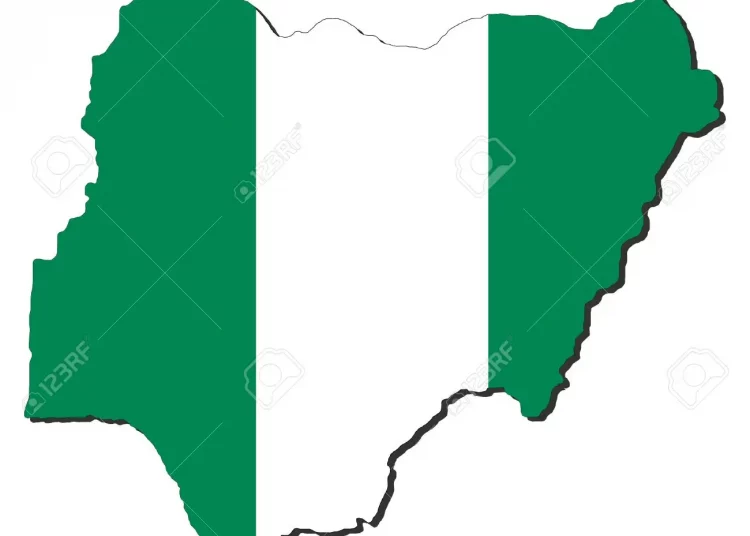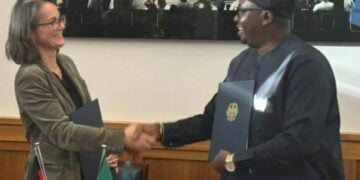As Nigeria’s debt stock continues to rise amidst worries by analysts on the sustainability of the country’s debt, a total of N11.784 trillion and $8.168 billion has been spent over the last seven years to service both domestic and external debt obligations respectively, data from the Debt Management Office (DMO) collated by LEADERSHIP has shown.
The country’s domestic and external debt stock has risen by 127.9 per cent and 272.9 per cent respectively over the last seven years.
Compared to the N8.836 trillion domestic debt obligation of the country as of 2015, the debt stock had risen to N20.144 trillion as of the end of March 2022.
Annual debt service payment for domestic obligations had doubled from N1.018 trillion in 2015 to N2.054 trillion by the end of 2021, while in the first three months of 2022, the federal government had paid out N668.69 billion in interest on its local borrowings.
In the same vein, external borrowings of the country had soared to $39.969 billion as at March 2022 compared to the debt stock of $10.718 billion it owed external creditors as at the end of 2015.
In the same manner, the amount paid annually to service the external debt obligations rose from $331.059 million in 2015 to $2.109 billion in 2021. In the first quarter of 2022, the country paid out $548.789 million to its external creditors.
Analysts have continuously warned that the country’s debt profile is fast becoming unsustainable.
Minister of Finance, Budget and National Planning, Zainab Ahmed, recently mentioned that the rising debt of the country and its high spending plan were increasingly making servicing of its debt challenging.
With the country planning to expend N4 trillion on fuel subsidy, Ahmed noted that the unplanned subsidy payment would mean increased borrowing for the country.
“We also had asked that we needed to borrow more, which is very serious. Already we have borrowing increasing significantly and we are struggling with being able to service debt because even though revenue is increasing, the expenditure has been increasing at a much higher rate, so it is a very difficult situation,” she had said.
Meanwhile, the International Monetary Fund (IMF) had earlier warned that the country may be spending all its revenue on servicing debt in the next four years if the rising debt level is not cautioned. It is estimated that the country’s debt profile would hit N45 trillion by the end of this year.
IMF’s representative for Nigeria, Ari Aisen, disclosed that upon conducting a macro-fiscal stress test, the interest payments on debts could amount to Nigeria using 100 percent of its revenue to service debt by 2026 if not closely monitored.
He said, “So, the fiscal space or the amount of revenues that will be needed, and this without considering any shock, is that most of the revenues of the federal government, in fact 89 percent, are now for servicing debt, and it will continue if nothing is done. It is a reflection of the low revenue of the country. The country needs to mobilise more revenue to be able to have macroeconomic stability. It has become an existential issue for Nigeria.”
The rising debt profile of the country and the swelling servicing obligations also pose a threat to the ability of the country to raise more funds at the international market.
According to the World Bank, countries facing debt sustainability challenges may face reduced access to external funding, forcing abrupt fiscal adjustment.
According to the head of Financial Institutions Ratings at Agusto&Co, Ayokunle Olubunmi, debt servicing is a burden for Nigeria.
“It is like kicking the can down the road because if you look at the utilisation of most of the borrowings, it is for recurrent expenditure, which is not sustainable. Also, looking at the funds allocated for projects, you see that the quality of the projects is not top notch. In the short run it may seem as though we can manage, but the government is creating a problem for the future. If you look at the debt servicing-to-government revenue in 2020, you realise that it is going beyond the 90 per cent.
“This is just interest payment, not principal repayment; so when we are spending 90 per cent of our income to pay interest on the loans, it might look as if we are enjoying it, but in the next two to three years we would not be able to continue like this,” he said.
The chief executive of the Centre for Promotion of Private Enterprise(CPPE), an economist and former director general of the Lagos Chamber of Commerce and Industry (LCCI),
Dr Muda Yusuf, said the rising debt profile of government raises serious sustainability concerns, although government tends to argue that the conditions was not a debt problem, but a revenue challenge.
“The truth is that debt becomes a problem if the revenue base is not strong enough to service the debt sustainably. It invariably becomes a debt problem. What is needed is the political will to cut expenditure and undertake reforms that could scale down the size of government, reduce governance cost and ease the fiscal burden on government. It is important to ensure that the debt is used strictly to fund capital projects that would strengthen the productive capacity of the economy,” he said.





